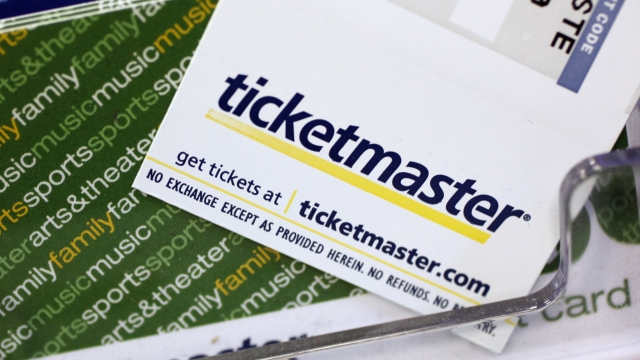WASHINGTON — Have you ever found yourself sitting at the computer waiting hours for the chance to get tickets to see your favorite artist?
If you are a music fan, the answer is likely yes, and there is a good chance you were waiting on Ticketmaster's website.
After several high-profile issues involving ticket sales and long wait times, Congress will take up the issue.
RISE OF TICKETMASTER
A congressional hearing on Tuesday will dive into whether Ticketmaster has too much influence on the music business.
Senators from both sides of the aisle will question whether a monopolistic environment contributed to recent issues involving Taylor Swift's upcoming tour where many fans experienced significant service failures and delays.
"They have a lot of power," Serona Elton, a music professor at the University of Miami, said.
"They are estimated to have about 70% of the market share," said Carolyn Sloane, an economics professor at the University of California Riverside.
Elton and Sloane said Ticketmaster's business model, which involves more than just selling tickets, will likely be scrutinized on Tuesday.
Ticketmaster's parent company is Live Nation, a business that is involved in ticket sales, including original and on the secondary market. It also owns and operates venues. Additionally, it promotes and manages tours.
The Senate Judiciary Committee wants to understand whether all that influence is anti-competitive.
Sloane says she'll be watching to see if any lack of competition resulted in a lack of investments, which ultimately contributed to the issues for Taylor Swift's fans.
"That's something we worry about in industries that are less competitive because they're not keeping up with investments because they're not pushed to do that to keep up with competitors," Sloane said.
Ticketmaster's influence on pricing is also expected to be brought up during the hearing. While artists ultimately set prices, Ticketmaster influences fees and does business in the secondary market.
Elton says what Ticketmaster says could prompt a discussion on new rules regarding the reselling of tickets.
Some countries, like Ireland, in recent years, have set limits.
"I do think there is more of an opportunity for regulation of the secondary market," Elton said.
"I think transparency would go a long way perhaps," Elton added.
Both experts agree that what Ticketmaster does every day shouldn't be overlooked.
It's not easy to sell so many tickets.
One hearing is also unlikely to change much.
The experts say a separate Department of Justice investigation that is also ongoing and looking into Ticketmaster may produce more change.
Editor's note: This article was updated to correct the name and title of Carolyn Sloane, an economics professor at the University of California Riverside.




